CONVERSATION #2(Thai Dhi & Thu Thu Shein)
20.07.11
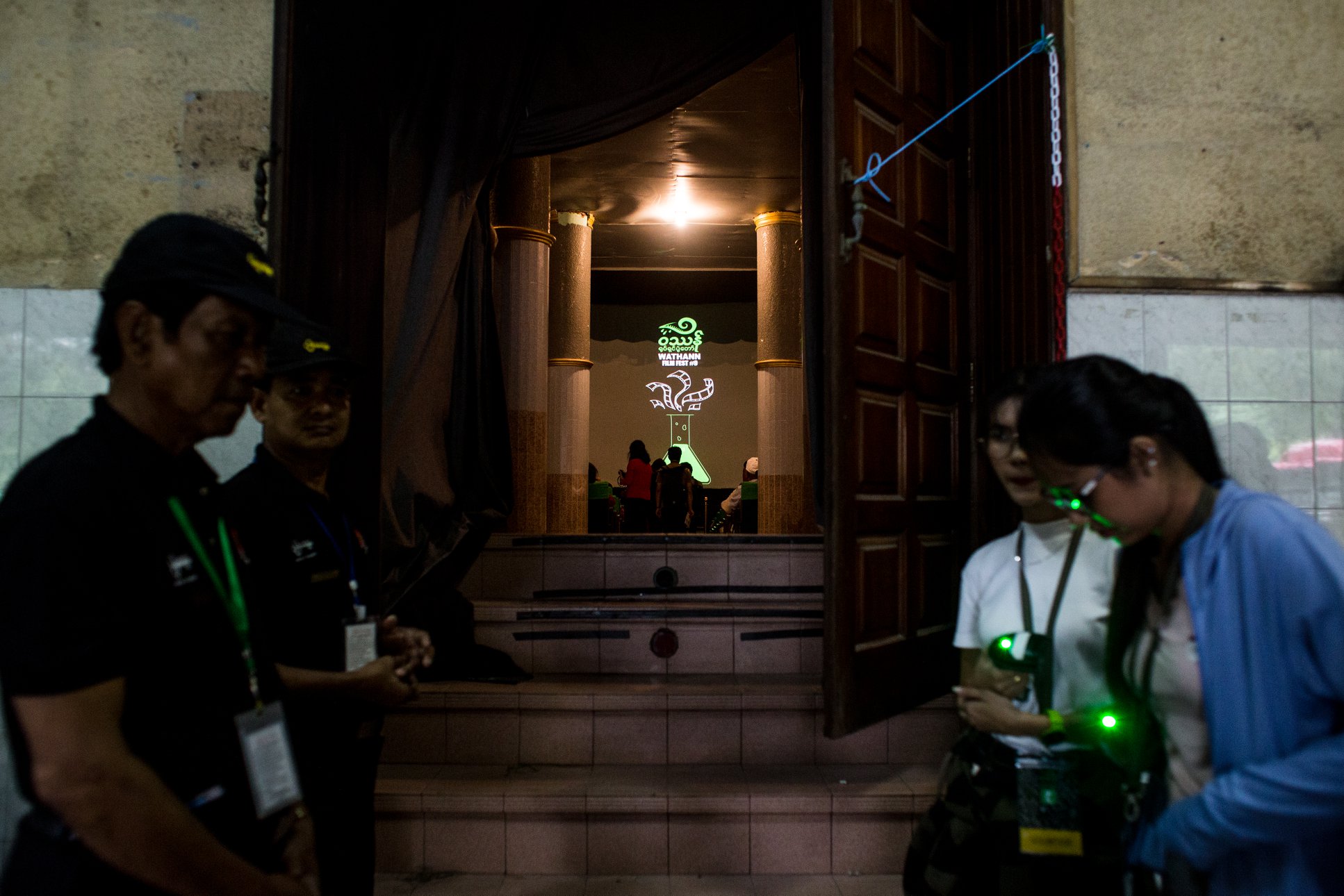
Thaid Dhi (Filmmaker, Program Director of Wathann Film Festival)
Thu Thu Shein (Filmmaker, Festival Director of Wathann Film Festival)
Interview by Haruka Iharada (Tokyo University of the Arts, Research Associate)
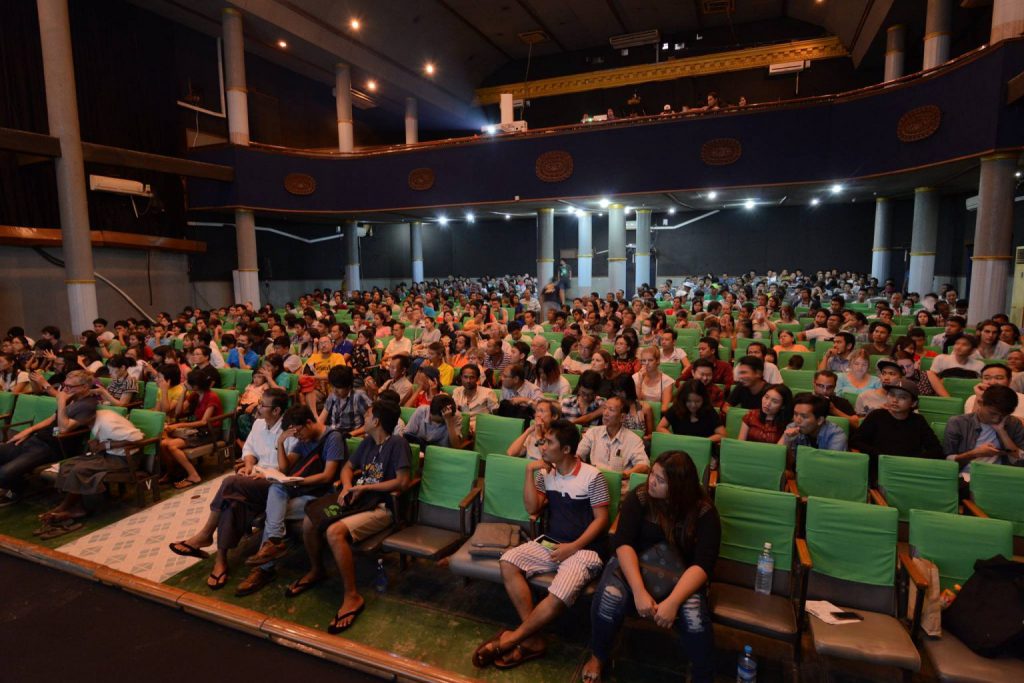
So the Wathann Film Festival will be celebrating its 10th anniversary this year. First of all, could you tell me how it was started and how you made it to where you are today?
Thaid Dhi: The first idea why we started the film festival is, at that time, we didn’t have any place to show film in Myanmar. We had already started to make documentaries and short films, but we didn’t have a place or a platform. We just showed them, but not publicly. So, the first idea was making a place for that. At the time we were studying in the Czech Republic, and we visited many international film festivals, including one in Europe. I think that experience was also an inspiration to me. To develop the independent film scene, including non-mainstream films such as shorts and documentaries, we needed a platform where people can meet and share ideas. That is why we started the Wathann Film Festival.
Thu Thu Shein: At first, we discussed and started the festival with five or six friends who were filmmakers and artists.
What are the differences between then and now? What was the scale of the festival at the beginning?
Thaid Dhi: In the beginning we had a very small budget, roughly $5,000USD for a five-day film festival. We had two difficulties at the time. The first was the censorship. We had never been censored before, and above all, there was no precedent for censoring film festivals in Myanmar. There was no system for censoring or getting permission for the festival itself. Second is the venue. We were not able to rent a commercial cinema. But I found a very nice monastery. It’s a Buddhist monastery usually used for weddings or religious ceremonies and has a very fashionable hall. There was an auditorium that could hold 400 people for monks’ seminars, and it was also used as a venue for wedding receptions. The fee for use was really cheap because we just had to donate to the monks. We changed this auditorium for monks into a film festival venue, and that’s where we held it. Of course, it was great to have monks at the film festival. The first and second festival lasted for five days and were attended by about 500 people—about 100 people for each screening, including the monks. The current attendance is over 4,000 people.
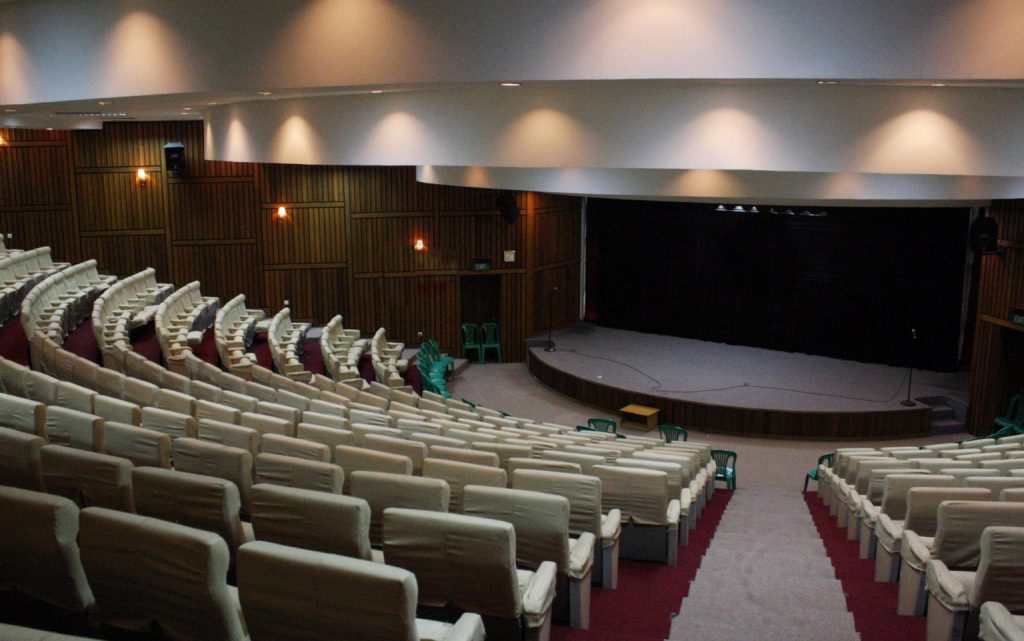
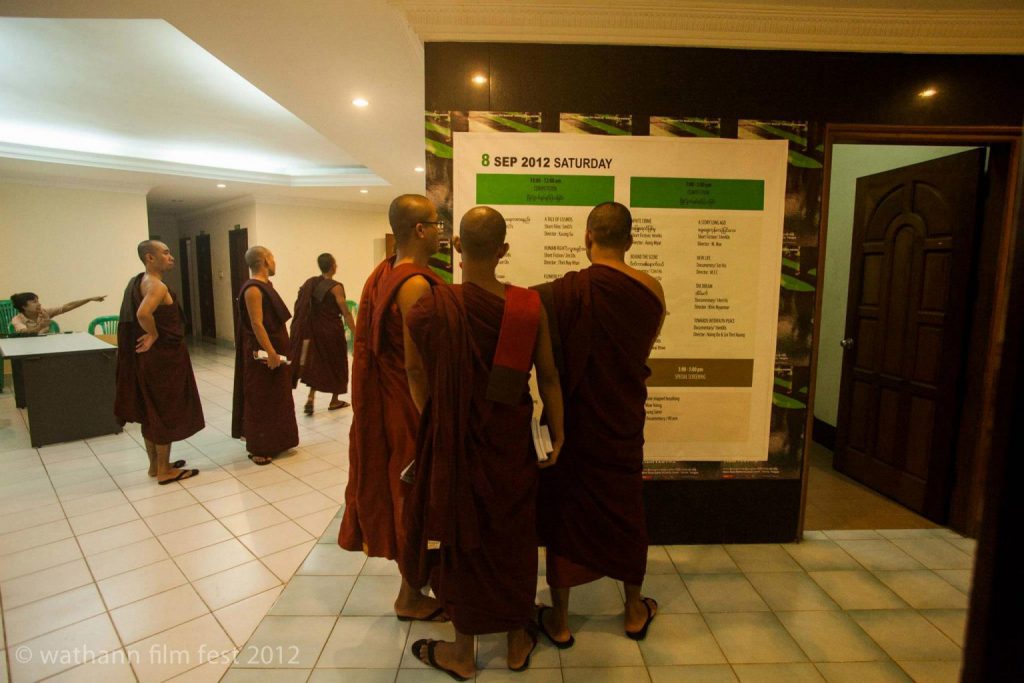
That sounds like a lot of fun. Can you tell me more about the censorship issues at the time, including the social situation?
Thu Thu Shein: There was no proper regulation for film festivals in Myanmar at the time because there were no film festivals before. Nevertheless, we felt that we needed to get some kind of “permission” for public screening or it would be a problem, so we had to approach the Ministry of Information, which makes regulations for films.
Thaid Dhi: I think the changing political situation at the time is point of the difficulties related to censorship. Because in 2010, general elections were held and the political society that followed was more democratic, or rather, the government was more of a “civil government” than ever before. It was a democratic government that wore a different uniform than the military government. Also, there was no pressure on us for what we were doing in our first and second years. So, the first and second year were quite okay.
Thu Thu Shein: We did not “apply” to run the festival when we were asking the government for permission. We just “announced (informed)” that the festival would be held. But in the first year, we couldn’t get a response in time for the festival to be held. Eventually, we held the festival, and on the last day we received an official response from the government. The letter just said, “We agree.”
Thaid Dhi: On plain paper, with the letterhead of the ministry on top, just one sentence: “We agree.”
Thu Thu Shein: There were special police wearing normal clothes at the film festival. It was the last day of the festival, and during the jury meeting before the closing ceremony the police came in and asked to meet with the organizer. But we were in the meeting, so we slowed down and told our friends to wait for him to outside. Everything was not known until the last minute. One of our jury who was at that time President of Myanmar Motion Picture Organization brought a letter from Ministry of Information. He gave us that letter at the end of the Jury meeting. The special police wanted to know where there we had permission or not. Luckily, we had the letter only a few minutes we meet that special police.
Sounds quite difficult. Has the situation around censorship changed since then?
Thaid Dhi: I think it was even tougher after 2012. Also after 2015, when there was a general election, the situation is more severe and complicated. It’s due to the “new government.” Originally, there were no documentary films in Myanmar with political subjects and or about the military, but when we had the film festival in around 2011, a number of documentaries were made about politics and military politics. People supported and liked that. The Human Rights Human Dignity International Film Festival (HRHDIFF) also featured a lot of those documentaries and many people supported their work.
However, since 2015 many documentarians have stopped criticizing the new government. There are two reasons for this. The first is that self-censorship is at work. If you criticize the current government, you won’t get big support from the audience. I think that’s what filmmakers are doing now. They are very quiet. I feel them self-censoring those feelings, like not wanting to criticize the current government for supporting Aung San Suu Kyi. Another thing is that the political situation has changed as well, and it is more complicated than it used to be. It used to be very clear, like as to the military government or Aung San Suu Kyi, which is better or bad. But now it’s a little bit more complicated, and it’s hard to show it clearly in black and white.
I think the documentary scene reflects that situation. So many filmmakers have begun to shoot the fiction. They are moving to a more complex representation through fiction. It’s kind of a representation of the current complex political situation.
I see. I have one more question about how things have changed from ten years ago to today. You mentioned earlier that the Wathann Film Festival was set up because “there was no place to show films, no film festival.” As you mentioned, there are a number of film festivals in Yangon today. How do you see this changing situation, the rise of film festivals in Yangon, and what role do you see the Wathann Film Festival playing in that situation? Tell me your thoughts.
Thu Thu Shein: Our festival is not only a festival, but also a number of small screenings, workshops, and a lot of other activities. We are more focused on our film festival’s importance for the community than the film festival itself.
Thaid Dhi: Since the Wathann Film Festival is dedicated to the development of the indie film scene, the festival doesn’t have a specific topic or theme. So, our audience is very clear. The Wathann Film Festival has also set up a triangle as its basic idea: building an audience, being a platform for screenings, and training film makers. We hope to develop the independent film scene through these three areas.
What kind of workshops do you hold?
Thaid Dhi: There are many. We also collaborate with different organizations and institutions. One of our main partners is FAMU (Prague Academy of Arts) in the Czech Republic. We have a long-term program with them where we have 12 participants from 9:00 to 17:00 every day like a school. It includes lectures and workshops. In this program, the first half is for making documentaries, the second half is for making short films. It is a three-month course in basic filmmaking. This is supported by the Transition Program, Ministry of Foreign Affairs, Czech Republic and we have done it twice so far. With our other partner, the Japan Foundation, we’ve been able to organize workshops on animation. We invite about three animators and experts to the workshop. For the last few years, we have been holding these workshops every year.
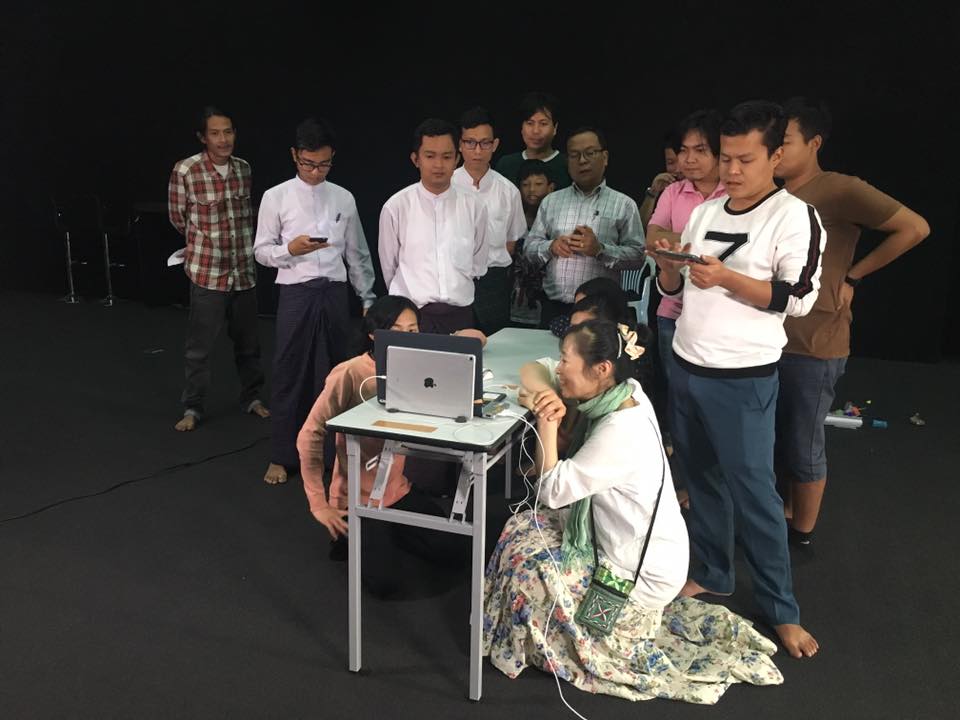

What kind of people participate in the program? Are there many young people?
Thaid Dhi: Many of them are young.
What are the situation of film education in Myanmar for the younger generation?
Thu Thu Shein: In the past, there was no place in Myanmar to learn filmmaking on an ongoing basis, so it was limited to workshops by organizations outside the country, or other organizations such as FAMU and Yangon Film School. And in 2007, when the National University of Arts and Culture started a cinema course, people, including me, expected to study at the university. But at that time, the university environment was not adequate. I think it’s very developed now. That’s why I think it’s important to have workshops and training schools outside of universities.
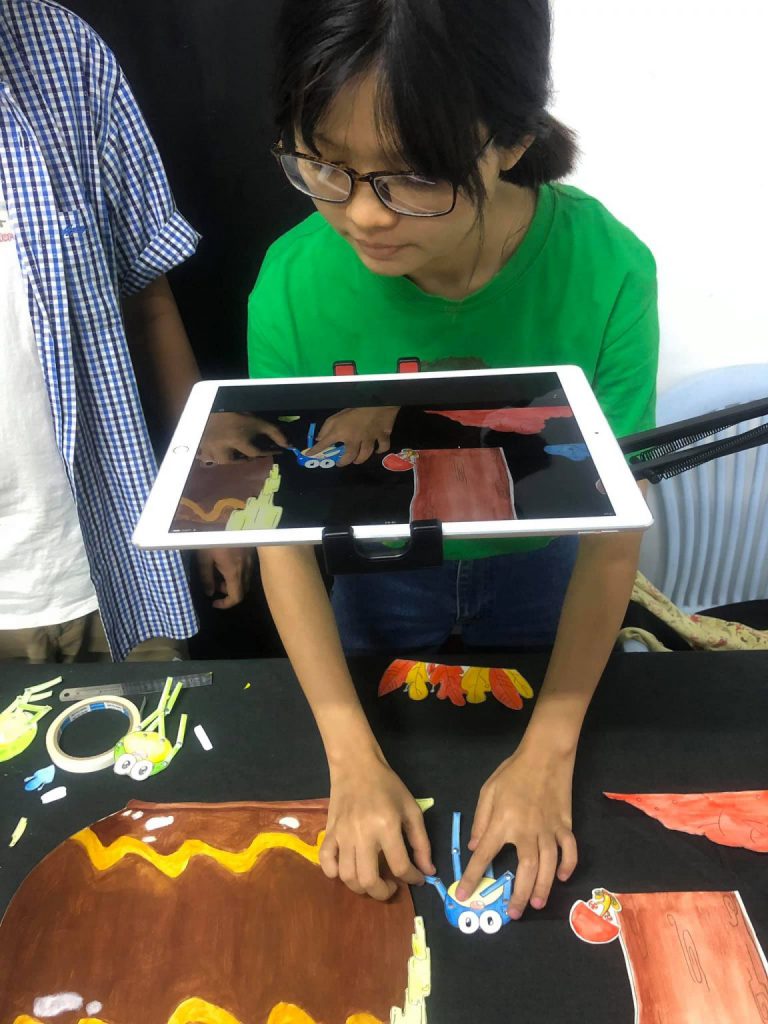
There are environments for learning outside of universities, and the younger generation will take advantage of them across the board in every country. It’s the same everywhere. What I found interesting in what you just said is that as the social and political situation in Myanmar has changed, there has been a change in the way filmmakers have moved from documentary to fiction. Are there any other new trends in the Myanmar film scene, including in the younger generation?
Thaid Dhi: There are some new and young filmmakers coming up within the Wathann Film Festival. For example, Zaw Bo Bo with Sick, which was also nominated for an award at the festival, is interesting. This film also got an award at the Singapore International Film Festival. In addition, last year Myo Thar Khin, an NUAC student, is only 19 or 20 years old. They are also creating new ways of storytelling.
The younger generation doesn’t show much interest in dealing with military and political issues. With their smart phones and new media, I’m sure they find our generation boring. They also focus on issues such as LGBTQ and gender. I think they’re very open. I don’t understand well the younger generation, but to hear new voices from them is quite interesting.
The other mission of Wathann Film Festival is networking with the international film festival scene. There is also a program that has links with film festivals in other Southeast Asian countries, and with filmmakers from Taiwan. Tell me about your intentions for and thoughts on these international relations.
Thaid Dhi: There are two points for making networks. The first is that we want to see high quality foreign films, especially documentaries and short films. I want to show good foreign works to Myanmar. The other is that I would like to know what is happening in the neighboring Southeast Asian countries. They have their own differences in history and technology compared to Western countries, so I would like to see what is happening in Malaysia, Thailand, Laos, and Cambodia. When I see good works from those countries, I wonder why they can do it and we can’t, because all of Southeast Asia has a very similar political situation and the same difficulties.
Are there any specific activities or film festivals that you are focusing on in neighboring countries?
Thaid Dhi: It’s not a film festival that I’m paying attention to, but we are part of the S-EXPRESS program. This program has programmers from each country in Southeast Asia, and the works will be screened at the film festivals in the participating countries. This is an interesting and cross-cultural program. In addition to our festival, there will be a chance to interact with others such as the Singapore International Film Festival, Indonesia, and more.
Above all, short films don’t make money, and neither do those film festivals. I believe that festivals in neighboring countries share the same difficulties in dealing with the independent film scene.
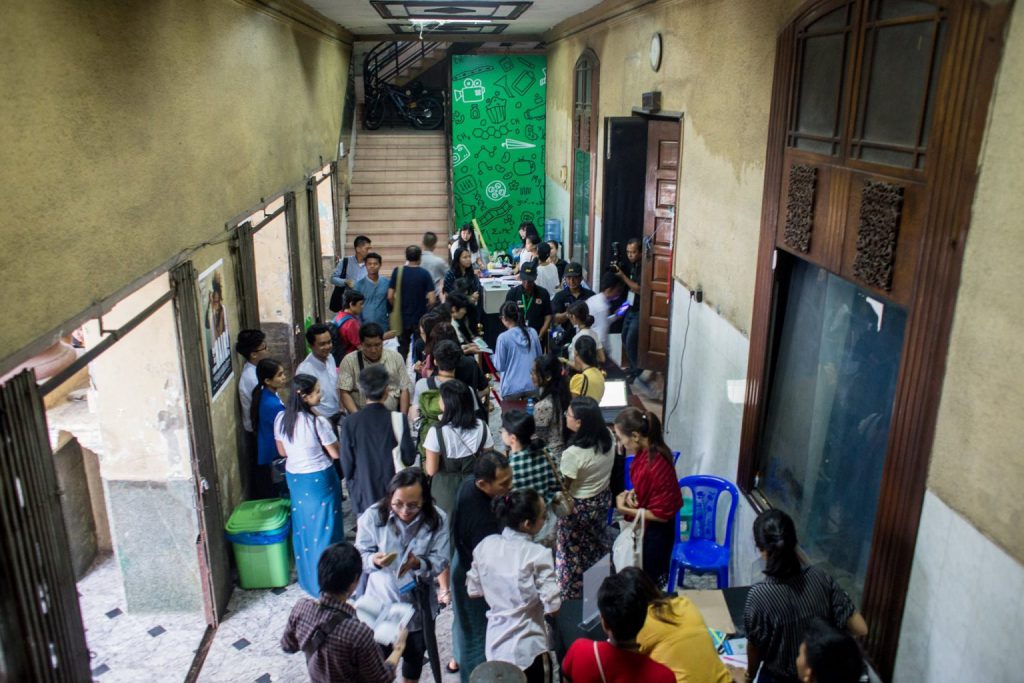
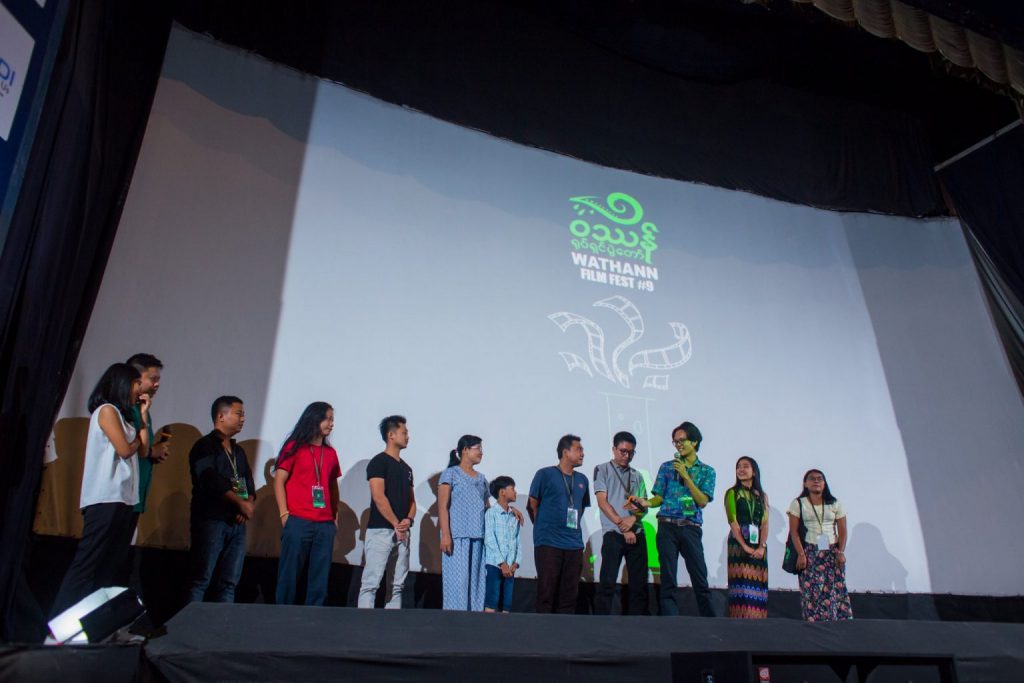
I’d like to ask you a few questions about the impact of the Covid-19 here. First of all, briefly, how has it affected your life together?
Thu Thu Shein: Personally, this time of year (June to July) is the period between being busy with film festivals and preparing for the Wathann Film Festival, so right now it feels normal, but I’m not sure about the future. We are still trying to determine at this stage whether or not it’s possible to hold the festival in October.
Thaid Dhi: Now (May 2020), it’s no longer a strict lockdown, but we need to wear masks and cannot have gatherings of more than five people. Stores around town seem to be back in business here and there, though. So, what we’re doing is I’m uploading the films that have screened at the festival over the past decade to our official YouTube channel. Also, we did a remote animation workshop on Facebook for people at home. Each of the 11 participants made a short film, which were then connected together to make one piece. I’m trying to experiment and never stop working online. I don’t want to let the stress of Covid-19 overwhelm me, so I’m keeping busy (laughs).
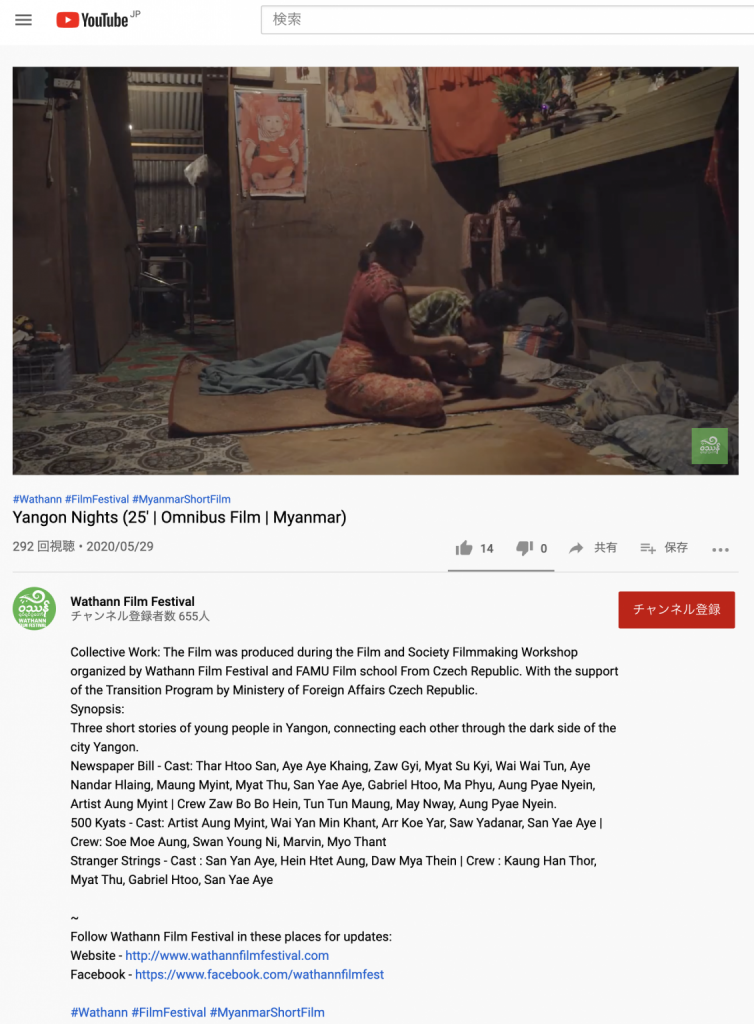
What impact has it had on the independent film scene and the film industry?
Thaid Dhi: I still can’t imagine what’s going on, but I think the film industry is probably suffering. The government has officially shut down all theaters. And with the ban on gatherings of more than five people, it’s virtually impossible to make a film, so almost all of them have been shut down. But compared to the independent film scene, I think the industry is better funded. I think it’s a more serious situation for the cameramen, editors, and other crew members involved in production than for the movie theaters. The same goes for freelancers.
Thu Thu Shein: A little good thing was that there was a donation drive happening for production. You can’t survive on that, but there are events in film and filmmaking made to help each other out.
Thaid Dhi: At this stage, it’s hard to imagine what’s to come, because until two weeks ago, people seemed very cautious, but now they are back to work. Because if they don’t work that day, they can’t eat that day. Some people don’t seem to care much about Covid-19.
Thu Thu Shein: And even in Bangkok’s shopping malls, it’s like people went there the day they opened.
Last question. As the Wathann Film Festival celebrates its 10th anniversary, what are some new developments and prospects for the future?
Thu Thu Shein: In the future, we hope to build a new team for the Wathann Film Festival that includes the younger generation. In addition to the usual programs, this year will also mark the 100th anniversary of Myanmar’s film industry. We’re also working on a program for that.
Thaid Dhi: No one knows what to do for Covid-19, but for now, I would like to look back at the last 10 years and prepare various projects, such as organizing an exhibition. Again, I don’t know if we’ll be able to do it or not, but I’d like to.
Thu Thu Shein: Normally at this time of year, filmmakers would be working on their films for the festival. But this year, no one has been able to make films because of the situation. I’m most anxious about what kinds of films we’ll be able to show.